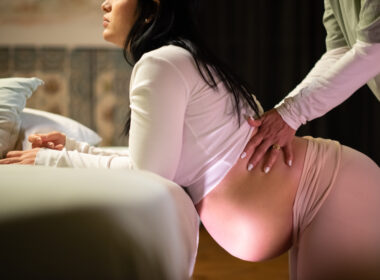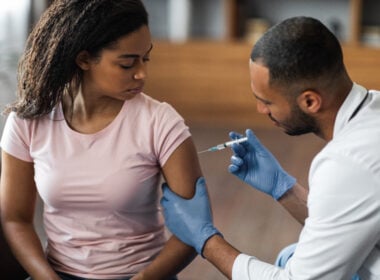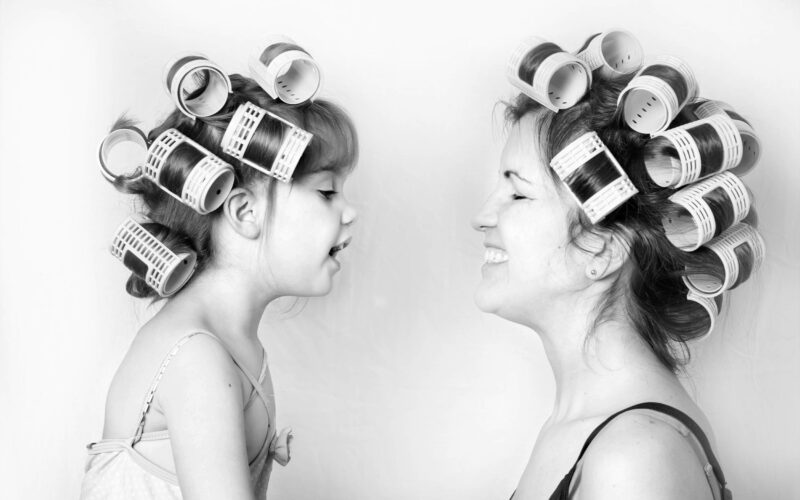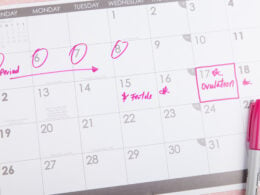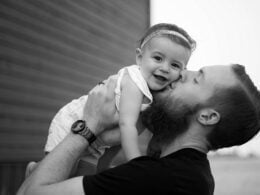When parents openly use fertility awareness, children get a unique perspective on the body. My daughter sees fertility awareness in daily practice lived out. This means she sees me take my temperature every morning. She sees my menstrual products. It means by the time her hormones venture into puberty, the information (hopefully) will not be completely foreign to her. My hope is that she will grow up with an appreciation and basic understanding of her reproductive health, an open dialogue about sex and reproduction, and a strong role model of how fertility awareness can be lived.
I intend to give my daughter a better education in her own body than what too many girls are getting. It’s a crime that sex ed doesn’t include an entire chapter on cervical fluid. Teens often experience high levels of estrogen as their hormones mature (those mood swings come from somewhere), which in turn results in large amounts of cervical fluid. In my experience, this was not once talked about. Ever. That means half of the teen population is experiencing something that no one talks about. I think if it had been mentioned just once—even casually—a whole world would have been elucidated for me. If only the foundation is set here, she can build upon it when she is ready. Sex Ed isn’t a class you attend once at 13, or 10 or even 8 years old. It’s an ongoing conversation as emotions and hormones evolve. Using the fertility awareness method sets up a great environment for this conversation. When she asks questions about why I’m taking my temperature, or how babies get in people’s tummy—I intend to give her the answer (appropriate to her age, of course).
Dialogue about sex and reproduction doesn’t need to be overly thorough. A little can go a long way. My daughter is still quite young so we are far off from the teenage years. But that doesn’t mean I’m not already thinking about them! I remind myself that it’s completely normal for a teenager to *not* want to share every single detail about her burgeoning love life. (Weren’t we all there at some point?) I don’t want to drill fear and dread around the subject, I instead hope she will have a good footing of science from growing up around fertility awareness.
At some point, I expect her to be pressured to use hormonal birth control. Either from her peers, the family doctor, or more likely, the media. When I think back to where I got my impressions about life, love, and birth control, it was driven 99.99% by the shows and movies I watched. No joke. (Looking at you, “Laguna Beach.”) I can’t fight the media, nor do I intend to. But I hope to provide her with sound research on the importance of normal hormonal maturation along with good literature on charting for teens. I’ve been working with FEMM’s teen program during my training and it’s been amazing to see the research they have come up with. I would love to see more of this content in the future. Teens are capable of so much more than we give them credit for.
But no matter what I say, what I do will always make the bigger impression. The way my daughter sees my relationship with my spouse will mean more than any lecture I give. This means really fostering my relationship with my husband. Kids pick up on things, even—especially—what they don’t necessarily see. Prioritizing intimacy when the season permits (six weeks postpartum may not be that season) promotes closeness in the everyday. This is the foundation now for coming years. She’s only two, but this is the time we teach respect and autonomy for our bodies. She learns to say , “Don’t do that,” if something is making her uncomfortable: tickling, hugging, roughhousing. She learns the anatomically correct words. I want to pass along pride and awe about the amazing things the female body can do. I don’t have a son (yet) but would hope to pass along many of the same things.
We may think our kids aren’t paying attention, but they soak up everything we do and say. It is my hope that my daughter will absorb fertility appreciation and have a certain wonder for the things her body can and will do—not fear, anxiety, or insecurity. I’ll never achieve perfection, but I feel confident that by allowing my children to have a strong education in science-based fertility awareness, they will gain a perspective necessary for bodily autonomy and respect.
Resources for teen fertility awareness education
The Couple to Couple League realizes that mothers are in a special position to engage their daughters about the gift of their fertility. Their Mother / Daughter program lets you choose the resources you feel would be the best to communicate with your daughter about fertility awareness.
Teen STAR is a developmental curriculum founded by Hanna Klaus, MD (Sr. Miriam Paul , MMS) that helps adolescents and young adults to come to terms with their emerging sexuality and fertility and assist them in making responsible decisions.
The Cycle Show is an educational, interactive, multi-media, fertility awareness workshop for young girls.
The FEMM App helps girls understand their reproductive health in all its physical and emotional complexity.

